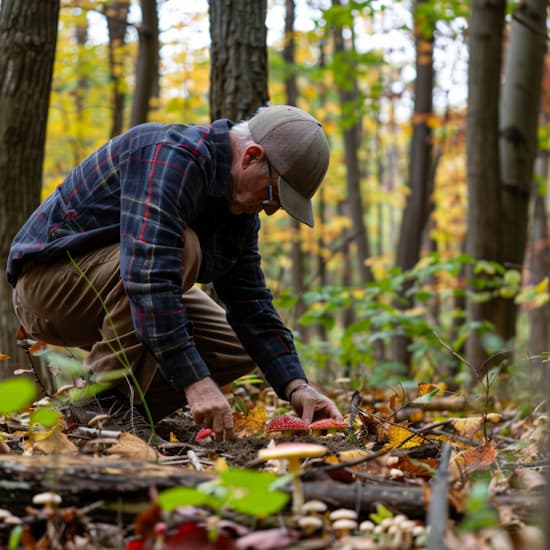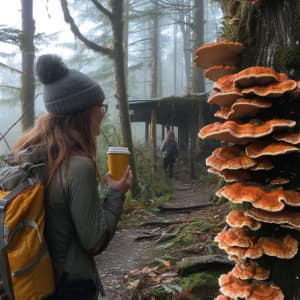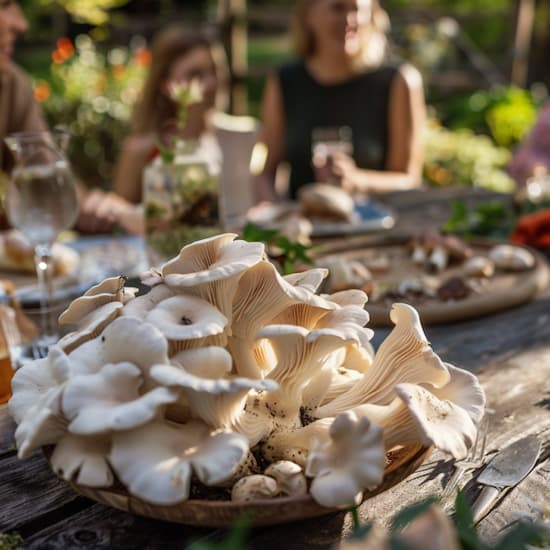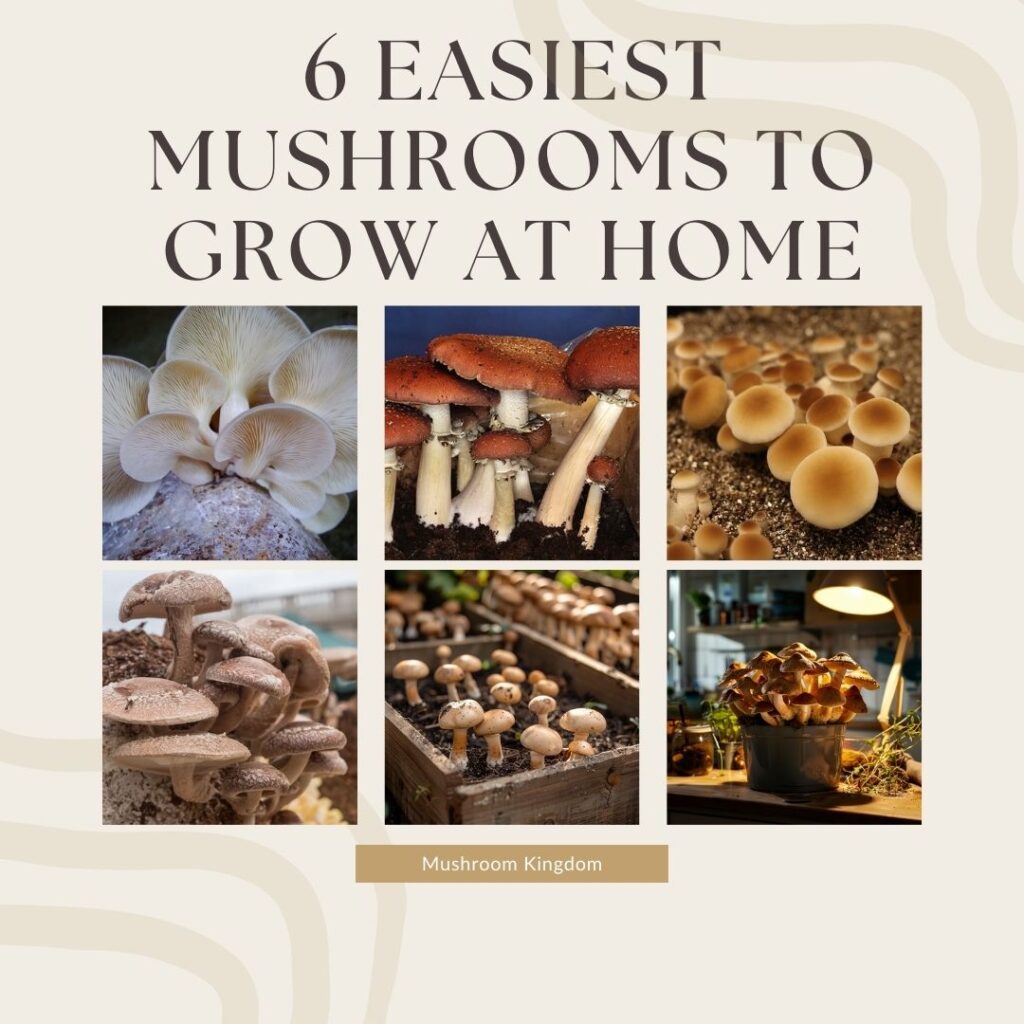Welcome to the world of mushroom foraging etiquette, where respect for nature and fellow foragers is paramount. In this article, we’ll explore the principles of responsible foraging, from understanding the environment to promoting ethical practices.
Whether you’re a seasoned forager or a beginner, embracing mushroom foraging etiquette ensures a harmonious experience for both you and the environment.
1. Be Mindful of Hazards like Wildlife and Terrain
Stay alert and aware of your surroundings while foraging, keeping an eye out for potential dangers like snakes, insects, or uneven terrain. Avoid disturbing wildlife and their habitats by maintaining a respectful distance and minimizing noise.
To make your mushroom hunt safe, take precautions against environmental hazards. This includes slippery surfaces or steep slopes, especially in wet or rugged terrain.
2. Use Proper Tools and Equipment
Equip yourself with the right gear for mushroom foraging. The list should include at least basic gear such as:
- Sturdy basket or bag to collect mushrooms
- A small knife for harvesting
- A field guide for identification.
- Wear appropriate clothing and footwear for the terrain, such as sturdy boots and long pants to protect against scratches and insect bites.
- Carry essentials like water, snacks, and a first aid kit in case of emergencies while foraging in remote areas.
3. Identify Poisonous Mushrooms and Avoid Them
Learn to recognize common poisonous mushrooms in your area by studying their distinctive features, such as colour, shape, and odour. Stick to foraging for mushrooms you are certain are safe to eat.
When in doubt, leave it out. It’s not worth the risk.

Also, take caution when handling certain mushrooms. Some poisonous varieties can cause skin irritation or allergic reactions upon contact.
4. Respect Protected Areas and Private Property
Pay attention to signs and regulations in protected areas and wildlife reserves. These places often have rules in place to protect the delicate balance of nature. For example, some areas might be off-limits to foragers to prevent damage to plants and animals.
Before stepping onto private property to hunt for mushrooms, always ask for permission from the landowner. It’s their land, and they have the right to say whether you can forage there or not.
Also, do not leave any evidence.
This means picking up any trash you might find, being careful not to trample on plants, and not disturbing any animals you encounter. The goal is to enjoy nature without leaving a mark.
5. Don’t Get Greedy
Take only what you’ll use. It’s tempting to gather as many mushrooms as possible, but remember that other foragers and wildlife rely on them too. Plus, leaving some mushrooms behind ensures that the population can reproduce and continue growing.
Moreover, consider the ecosystem. Some mushrooms play crucial roles in their environment, like breaking down dead plants and helping trees absorb nutrients. By leaving some mushrooms untouched, you’re helping to maintain the balance of the ecosystem.
6. Avoid Damaging the Mycelium
Be gentle when harvesting mushrooms. Try to cut them cleanly at the base instead of pulling them out of the ground, as this can damage the mycelium — the fungal network underground that supports mushroom growth.
Also, watch where you step. Avoid trampling on plants and disturbing the soil, as this can disrupt the delicate balance of the ecosystem and harm other organisms that live there.
7. Respect the peace and solitude of nature
Embrace the quiet. Nature offers a peaceful escape from the hustle and bustle of everyday life. Respect the tranquillity by keeping noise to a minimum and avoiding loud activities like shouting or playing music.

Take time to appreciate the beauty around you. Sit quietly and soak in the sights and sounds of the natural world. You’ll be amazed at what you notice when you take the time to slow down and observe.
8. Leave no trace
Clean up after yourself. Whatever you bring with you into the wilderness, make sure it all comes back out. That means picking up any trash or leftover food and disposing of it properly.
Leave the place as you found it. Resist the temptation to rearrange rocks or plants for your convenience. Keeping things natural preserves the beauty of the landscape for others to enjoy.
9. Understanding the ecological impact of foraging
Foraging can have both positive and negative effects on the environment, depending on how it’s done. Understanding these impacts helps you make informed choices about where and how to forage.
Consider the big picture.
While harvesting mushrooms can be enjoyable and rewarding, it’s essential to recognize that it’s part of a larger ecosystem. By understanding how mushrooms fit into the ecosystem, you can minimize your impact and help maintain balance.
Follow the rules. Many areas have specific regulations governing mushroom foraging to protect sensitive habitats and species. By obeying these rules, you contribute to the conservation of natural resources and help ensure that future generations can enjoy them too.
10. Educate others
Share your knowledge. As an experienced forager, you have valuable insights to offer to others who may be new to the hobby. Take the time to educate them about responsible foraging practices, including how to identify mushrooms safely and sustainably.

Lead by example. Show others what it means to be a responsible forager by practising ethical behaviour yourself. By demonstrating respect for nature and wildlife, you inspire others to do the same and help create a culture of stewardship.
Share positivity
Remember to share positivity and enjoy the foraging experience. Foraging for mushrooms isn’t just about finding food — it’s about connecting with nature, experiencing the thrill of discovery, and appreciating the beauty of the outdoors.
Share your enthusiasm with others and spread the joy of mushroom foraging.
Final Thoughts on Mushroom Foraging Etiquette
By adhering to ethical principles such as leaving no trace, respecting wildlife, and sharing knowledge, we can preserve the beauty and abundance of our natural landscapes for future generations to enjoy.
So, let’s continue to explore the world of mushrooms with mindfulness, responsibility, and a commitment to ethical foraging practices.


